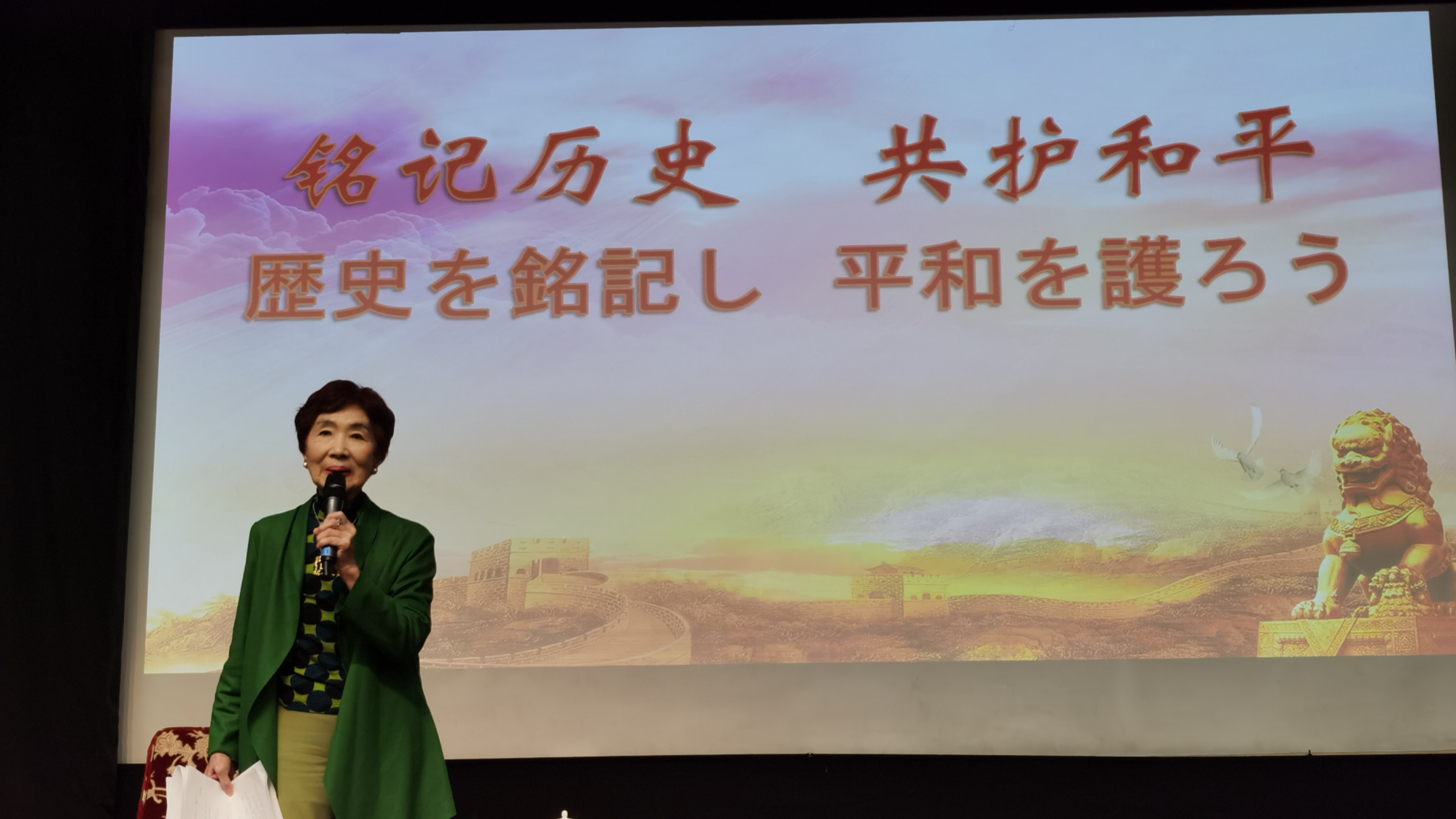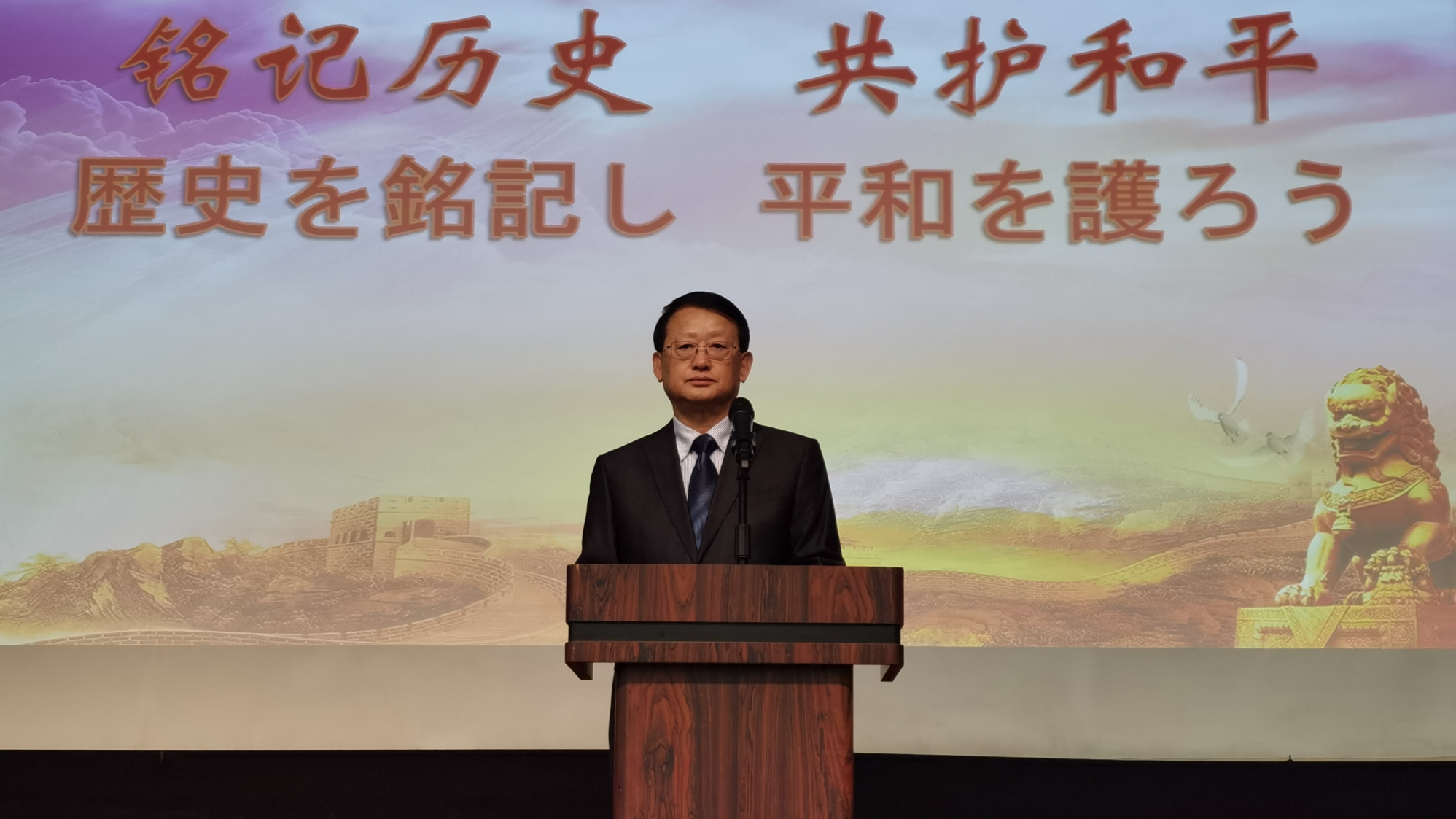
Hideko Ito, a former member of Japan’s lower house of parliament and the daughter of a military police officer who sent Chinese captives to Unit 731, the infamous Japanese germ-warfare detachment during World War II, shared her father’s enduring message: “Never go to war again.”
“He often said, ‘War drives people insane. It normalizes killing and makes it seem acceptable’,” Ito recalled during an exchange meeting with Chinese students and embassy officials at the Chinese embassy in Japan on Nov 26.
At the event, over 30 Japanese anti-war advocates urged continued efforts to resist militarization and uphold peace. Ito reflected on her father’s experiences, including his reeducation at a war criminals management center in Fushun, Liaoning province.
READ MORE: China marks 87th anniversary of resistance war against Japanese aggression
Of the many war criminals tried in China in 1956, most were exempted from prosecution, but 45 individuals, including Ito’s father, received prison sentences.
Her father returned to Japan when Ito was in junior high school, carrying deep regret for his wartime actions and expressing profound gratitude toward China.
“My father admitted that they had been indoctrinated to believe they were serving the nation and the Emperor,” Ito said. “But at the same time, they committed inhumane acts — killing, looting, and abusing women — under the guise of duty. They were part of a system that allowed such contradictions to thrive.”
Ito emphasized that it was militaristic and statist propaganda that created such moral failures. “War is never initiated by ordinary citizens. It is always disguised as serving the nation, driven by the ambitions of those in power. As voters, we must critically examine our government’s actions,” she said.
She voiced concern over current policies, particularly the claim by some Japanese politicians that “a Taiwan contingency is a Japan contingency”. This rhetoric has led to expansion of Japan’s Self-Defense Forces’ bases in Okinawa prefecture, with missile deployments aimed at China.
Ito believes the solution lies in fostering deeper trust and stronger connections between the peoples of Japan and China, through cultural, economic and professional exchanges.
Ryuji Ishida, an associate research fellow at Shanghai Jiao Tong University and a research fellow at the International Peace Research Institute of Meiji Gakuin University, highlighted the unique approach of China’s 1956 war crimes trials.
Unlike the Tokyo Trials, which emphasized punishment, China’s trials focused on reflection and rehabilitation. More than 1,100 individuals were targeted, yet many expressed genuine remorse, and those tried in China often became active participants in peace movements after returning to Japan.
“China’s trials sought to transform international relations into a cooperative system to prevent future conflicts,” Ishida explained. “Even the most unforgivable war criminals were treated as individuals capable of reform, with respect for their human rights and opportunities for education.”
This approach, he said, was rooted in the belief that trust must be proactively extended, even to adversaries, as a means of preemptively establishing peaceful relations.
READ MORE: China marks 79th anniversary of victory against Japanese aggression, fascism

Major General Huangfu Qunxing, defense attaché of the Chinese embassy in Japan, underscored the importance of learning from history to guide future actions.
“Our goal in reflecting on history and remembering its lessons is not to perpetuate hatred but to inspire the two peoples to uphold their original aspirations for peace and friendship,” Huangfu said.
He called on the peoples of China and Japan to deepen mutual understanding and work together to overcome challenges on the path of preserving peace.
Contact the writer at jiangxueqing@chinadaily.com.cn


